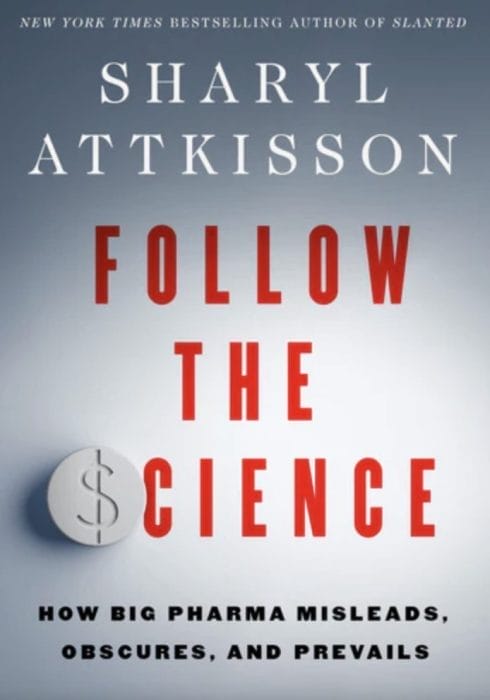The following is an excerpt from The Vaccine Reaction.
Citing new studies linking the analgesic drug acetaminophen (a chemical also known as paracetamol or by brand names Tylenol and Panadol) to the development of neurological conditions such as autism, attention-deficit disorder and hyperactivity in their children, women in the United States have filed 87 lawsuits in seven states against several pharmacies that sell the drug, including Costco, CVS Health, Rite Aid, Safeway, Target, Walgreens and Walmart.
The women filing the lawsuits allege that the acetaminophen that they took while they were pregnant caused their children’s neurological problems. They say there are more than 20 peer-reviewed studies that have found an association between the development of brain disorders and the use of the over-the-counter analgesic drug, which was licensed in the mid-1950s and is the most widely used physician-recommended pain reliever world-wide.
Plaintiff attorneys specifically cite a 2018 study by Hebrew University of Jerusalem published in the American Journal of Epidemiology on Apr. 24, 2018 that found a 30 percent increase in the relative risk of attention deficit hyperactivity disorder (ADHD) in children, whose pregnant mothers took high amounts of the drug, and a 20 percent increase in relative risk of autism spectrum disorder (ASD).
According to Ilan Matok, PhD of the Institute for Drug Research in the School of Pharmacy at Hebrew University:
Our findings suggest an association between prolonged acetaminophen use and an increase in the risk of autism and ADHD.4
A more recent study, which was conducted by researchers at Penn State University and published in PLOS One on Sept. 22, 2022, found an association between the regular use of acetaminophen by pregnant mothers and a 20 percent increased risk of ADHD or sleeping problems in their children by the age of three years.
The study authors wrote:
The fact that neurological dysfunction underlies both sleep and attentional issues in children suggests that an important mechanism of influence may be the impact of acetaminophen on prenatal neurology, which may impact the regulation of attention and sleep in the preschool period. On this note, acetaminophen has been found to be associated with reduced brain connectivity of the amygdala, a part of the brain responsible for self-regulation.
One of the concerns about acetaminophen is its role in the depletion of the antioxidant glutathione, which is essential for detoxification.
Mark Hyman, MD of the Cleveland Clinic calls glutathione the “mother of all antioxidants, the master detoxifier and maestro of the immune system.
Acetaminophen depletes the levels of glutathione in the body, making it harder to excrete harmful toxins.
Joseph Mercola, DO has referred to glutathione as the “master antioxidant”—the most powerful antioxidant in the human body, the “one antioxidant” that “keeps all other antioxidants performing at peak levels.
Continue reading article here.




There is a well-respected man in my hometown. In his childhood, he had a helicopter mom that gave him children’s tylenol for every owie, booboo, and illness he had from the time he was born until he was in his mid-teens. As a consequence, he was sterile as an adult. His doctor had definitively made the link when a study done in the 1980s suggested that a link exists between over-use of Children’s Tylenol in young boys, who then become sterile in adulthood (I believe that study was widely reported at the time–I remember hearing it on the radio and talking to my mom about it). Thus, I am not surprised when such links are made about neural development in utero. In fact, this might even be the link that determines those who are “predisposed” to it that then have the autism, adhd, or other neuro-developmental disorders manifest after being injected with a substance that has the capability to destroy the human immune system.
Maybe there is something else going on here.
My wife consumed alcoholic beverages while pregnant in the early 1970s, Until about the 1970s most women did consume alcoholic beverages. Our second child was born in 1974, both were excellent students and obtained great jobs after college.. I don’t recall exactly when fetal-alcohol syndrome first surfaced, maybe the 1980s.
In the latter 1980s, some of us discussed this in graduate school. We were elementary and secondary school administration and the connection was special education implications.
One thought that was put forth involved alcohol reacting with another substance that had been ingested, food additives (preservatives) recently added to processed foods.
Acetaminophen has a much narrower timeline, It appeared as Tylenol and was expensive. People were familiar with aspirin and continued to use it until aspirin was linked to Reye’s Syndrome in children, then Tylenol gained popularity.
Didn’t John Edwards make millions of dollars suing doctors for malpractice because their medical misadventure caused autism in babies?